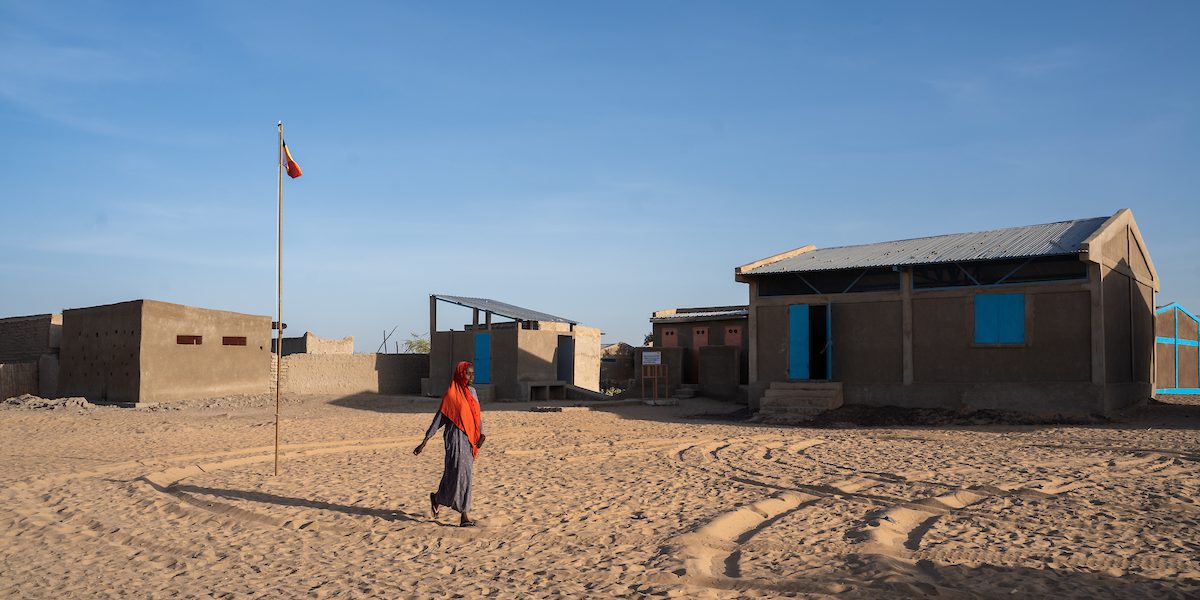JRS Chad: Building for Girls’ Safety and Inclusion
28 May 2022

In Chad, Menstrual Health Management (MHM) largely remains a taboo that hinders girls’ education. There is a profound lack of knowledge, equipment, and infrastructure so that girls can manage their periods easily at school, which leads to absences and greatly increases their risk of dropping out altogether. According to a survey conducted by UNICEF-Chad, out of more than 20,000 girls, only 56% normally practice menstrual hygiene and 60% are embarrassed during their periods of menstruation.
Jesuit Refugee Service (JRS) works in the Lake Chad region on strengthening Menstrual Health Management (MHM) for girls from displaced families and host community families. This has been identified by the Ministry of Education as one of the barriers for girl’s education. The project, which is funded by Education Cannot Wait (ECW) and UNICEF and is being implemented by JRS, has four main activities:
- distribution of MHM kits,
- local production of MHM kits thanks to a training of trainers and support to develop Iincome generating activities,
- teachers’ training on MHM by the Ministry of Education
- a community-based awareness campaign.
You may notice there is one key component missing from that plan: infrastructure.
How can a girl maintain her hygiene during her period when she lacks a decent toilet – or even a toilet at all – as well as access to sufficient clean water, soap, affordable sanitary pads, and the means to dispose of them properly? That’s why JRS decided to promote a menstrual hygiene project for equitable and inclusive access to education in the Lake Chad region.
In this fragile, conflict- and crisis-affected region, the education system is very weak at every level. The opportunities to access education are limited, especially for girls. In Chad, only 19% of girls have access to secondary education, compared to more than 40% of boys. Furthermore, only about 9% of girls complete their secondary education, compared to 25% of boys (UNICEF).
Promoting MHM in schools requires special emphasis on sanitary infrastructure (separate latrines) and water points. With that in mind, JRS is rehabilitating or building latrines and water points, which in turn, ensures better MHM practices. This makes it easier for girls to actively participate in their classes without being forced to skip days.
To date, JRS has rehabilitated 8 latrine blocks and 8 water points. A further 8 latrine blocks are currently being built. This project has brought smiles not only to the students, but also to the teachers, principals and the entire community.
Some of the schools this project affected had access to water and separate latrines for the first time. For example, the school in Goumatcherom had neither latrines nor drinking water, but they do now thanks to JRS’ construction of a latrine block with 3 cabins as well as a water point. The project has been a great relief for the students and staff alike. In addition to promoting MHM, the new latrines will also offer a handwashing station – which is essential in the age of COVID-19.
The situation is similar in the other sites chosen for rehabilitation and construction. The constructed water points benefit not only the beneficiary schools but also the host community and the displaced people living on the school sites.



